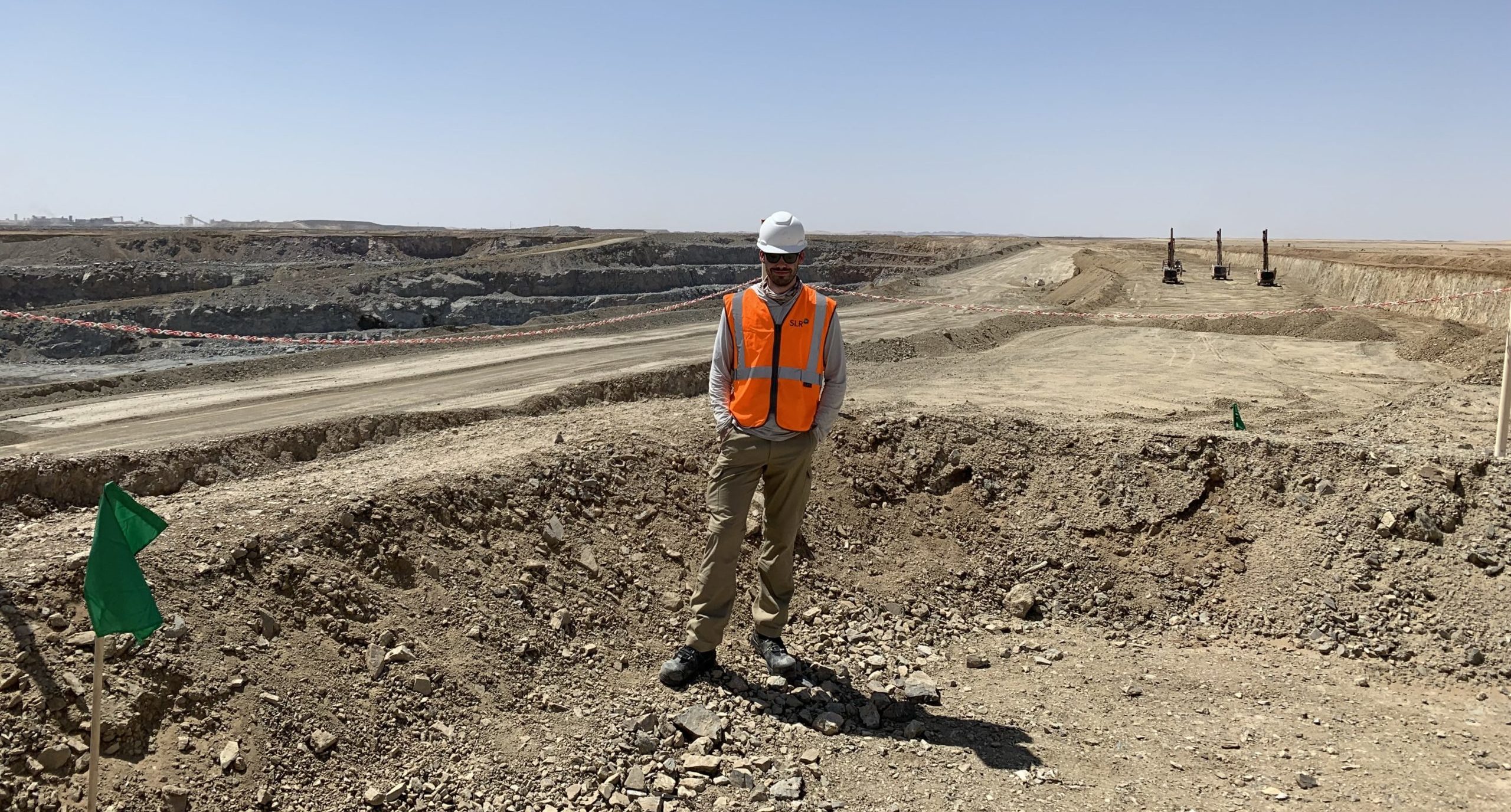Our world-leading environment and sustainability research underpins a wide range of postgraduate programmes. In our Meet our Students series we look at the journeys taken by those studying MSc courses within the Graduate School of Environment and Sustainability, explore why they have chosen to study with us and learn about their experiences at the University of Exeter, Cornwall. Today we hear from Mason Lees, an MSc Exploration Geology student!
Name: Mason Jordan Lees
What course are you studying? MSc Exploration Geology
Where do you call home? Manchester
Where did you complete your undergraduate course? The University of Manchester
What was your undergraduate course? BSc Geology and MScRes Earth Science
Did you work or volunteer before starting your MSc programme? If so, in what roles?
After completing my MScRes in 2020 I joined Wardell Armstrong as a geologist. My role within Wardell Armstrong mostly centred around coal mine remediation and geotechnical evaluation of historic coal workings across the UK.
After a year, I joined The Coal Authority as a research and development assistant working on coal and metal mine geochemistry across the UK. The work mainly focussed on how we can remediate polluted mine waters by passive and active methods.
I then began my role at SLR Consulting as a Project Geologist. The role ignited my appetite for mining, and it saw me work in the UK and internationally on base metal and industrial mineral exploration and mining projects. I gained experience in open pit operations, greenfield/brownfield exploration, and resource evaluation.
What attracted you to your MSc course? Why did you choose the University of Exeter?
Within the mining industry Camborne School of Mines is well renown and its name carries a lot of weight wherever you are. I knew the course offered me the chance to fully transition from being purely a sedimentologist into a hard rock geologist within a short time period. The course has always been seen as world class and I wanted to be a part of it.
What do you like about living and studying in Cornwall?
Coming from up north the transition to living in Cornwall has been interesting to say the least. I have primarily enjoyed the local and close-knit student atmosphere of living in the area and the outdoor lifestyle on offer straight from my doorstep.
What are you looking forward to most about your course?
I’m looking forward to applying what I have already learned in industry into an academic setting. I think making the links between what I have seen with experience and what I will be taught will be invaluable upon my return to industry.
What skills and experiences are you hoping to gain from your course?
I’m hoping to mainly gain the basic building blocks of how ore deposits form and the key exploration techniques involved in each ore deposit type. I’d then like to be able to apply what I have be taught on the course to my summer project.
What have been the highlights so far?
I think the best thing for me personally has been being back within an academic and university setting. Coming back to university certainly has its downsides but it has been nice to have certain freedoms you can only really get while completing a degree.
What are your career aspirations?
I know that I will remain in the mining industry once the course is complete. I have the options to move abroad or remain in the UK, but it is too early to decide at the moment as I’d like to experience the full course before I make any decisions. Having this degree affords you a lot of freedom with regards to where you decide to work, which is a nice feeling to have from a career and lifestyle perspective.
The Graduate School of Environment and Sustainability brings together experts from across the spectrum of earth and life sciences, engineering, humanities, social sciences and business. Our programmes are all designed with a focus on developing solutions to global challenges and creating a better future for our planet and its people. Help lead a global Greener, Healthier and Fairer revolution by studying one of our world-leading, interdisciplinary Masters degrees here at the University of Exeter, Cornwall. See our Masters programmes here.

